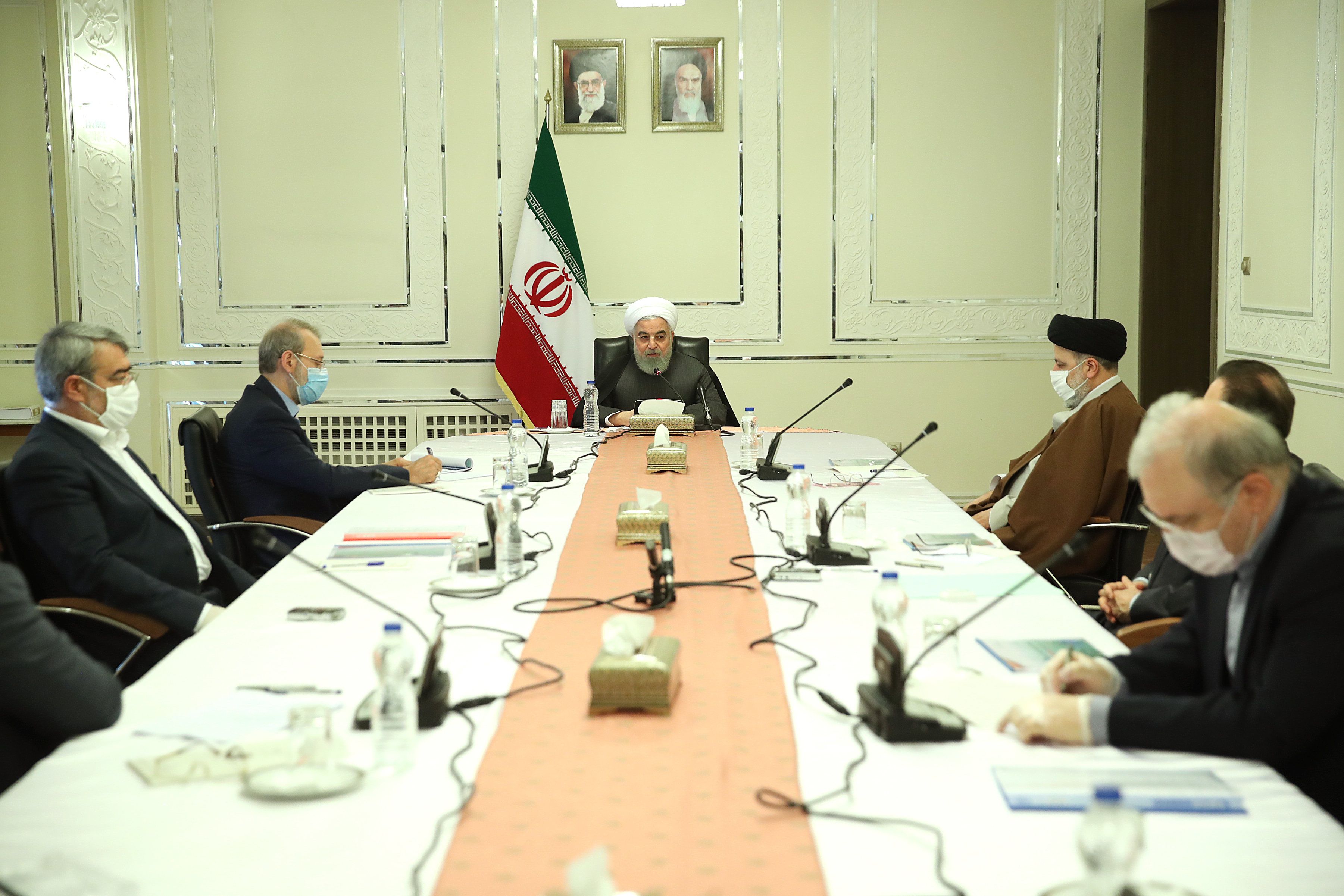March 23, 2020
Iran's corona quagmire – As the coronavirus death toll climbs in Iran, supreme leader Ayatollah Ali Khamenei has rejected US offers of humanitarian aid, citing a bogus conspiracy theory that the virus was manufactured by the United States. In a televised address marking the Persian New Year, Khamenei denounced President Trump's "maximum pressure campaign" since the US walked away from the nuclear deal in 2018. Iran's leaders say that the Trump administration should instead lift crippling sanctions that block Tehran from exporting crude oil and accessing global financial markets. Iran is battling one of the world's largest COVID-19 outbreaks, with some 22,000 confirmed cases and more than 1,800 deaths. One person in Iran dies from the virus every 10 minutes, according to an Iranian health official. The message from Washington: we'll offer humanitarian help if you want it, but sanctions aren't going anywhere.
COVID-19 reaches Gaza – Late Saturday, Palestinian authorities confirmed at least two coronavirus cases in the Gaza Strip, both recent returnees from Pakistan. Officials have now moved to isolate all travelers returning to the coastal enclave, but many say the quarantine facilities (schools, medical facilities) have extremely poor sanitary conditions that would allow the virus to thrive. Gaza, home to some 2 million people, is one of the most densely populated places in the world, complicating efforts at social distancing, and its healthcare system is already in disarray after years-long blockades by both Israel and Egypt. If the virus sweeps Gaza – which is already grappling with spotty electricity, corrupt leadership, and scarce resources – the outcome will be catastrophic.
Coronavirus infects Hungary's democracy – Hungary's defiantly "illiberal" Prime Minister Viktor Orban knows that a proper strongman lets no good crisis go to waste. After staying on-message early by blaming the pandemic on immigrants, he has now proposed changes to the country's emergency laws that would allow him to rule by decree indefinitely, while mandating jail sentences of up to five years for spreading information that raises panic or impedes the government's response. Orban, who has come under EU criticism for violating EU rules on democracy in the past, says he needs these new powers to grapple with the enormity of the crisis, but critics and human rights watchdogs warn that the measures are open-ended and threaten free speech. Hungary's legislature, which is controlled by Orban's Fidesz party, will vote on the changes this week.
More For You
How is the US is reshaping global power dynamics, using tariffs and unilateral action to challenge the international order it once led? Michael Froman joins Ian Bremmer on GZERO World to discuss.
Most Popular
- YouTube
In this Quick Take from Munich, Ian Bremmer examines the state of the transatlantic alliance as the 62nd Munich Security Conference concludes.
- YouTube
At the 2026 Munich Security Conference, Brad Smith announces the launch of the Trusted Tech Alliance, a coalition of global technology leaders, including Microsoft, committing to secure cross-border tech flows, ethical governance, and stronger data protections.
When the US shift from defending the postwar rules-based order to challenging it, what kind of global system emerges? CFR President Michael Froman joins Ian Bremmer on the GZERO World Podcast to discuss the global order under Trump's second term.
© 2025 GZERO Media. All Rights Reserved | A Eurasia Group media company.
